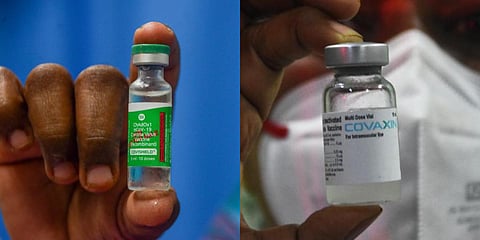

BENGALURU: Even after taking the second dose of the vaccine, at least two health workers at Jayadeva Hospital and a staffer at a mental health hospital recently tested positive for Covid-19.
Health professionals, however, say that this is no cause for alarm as vaccines do offer protection and in case one contracts the virus, the infection is likely to be less severe.
Both Covishield and Covaxin are being used in Karnataka and both are two-dose vaccines to be taken about four weeks apart.
Experts explain that once administered, vaccines trigger an immune response in the body to fight off the virus.
If the body encounters the virus again, the memory cells of the body’s immune system will kick in and protect the body from the virus. Despite this, they urge people to follow Covid protocol.
One could well ask why people should take the vaccine at all, said Dr CN Manjunath, member of the Covid Technical Advisory Committee and director of Jayadeva Institute of Cardiovascular Diseases.
He said that Jayadeva hospital itself has seen at least two such cases, but explained, “One should know that taking the vaccine is like driving a car with seat belt and air bag, (which reduce impact in case of collision). Taking the vaccine is like that. It will prevent fatality and greatly reduce severity,” Dr Manjunath said.
Dr Jacob John, virologist and former professor at Christian Medical College, Vellore, said that people who are vaccinated against Covid are not likely to be very sick or develop complications.
“They could even manage with home treatment. Our main aim should be reducing the number of ICU admissions and deaths, and this can happen with the help of vaccine,” Dr John said.
Head and neck oncologist at HCG Hospitals, Dr Vishal Rao, explains that an efficacy rate of 82% during clinical trials means there was a 82% reduction in cases of disease in the vaccinated group compared to the unvaccinated or placebo group.
“But efficacy in laboratory conditions does not always translate to effectiveness on the ground. In lab situations, it is mostly a controlled group of people (in trials) who do not have any health issues. But effectiveness of the vaccine is measured when it is administered to people under every day conditions,” Dr Rao said.